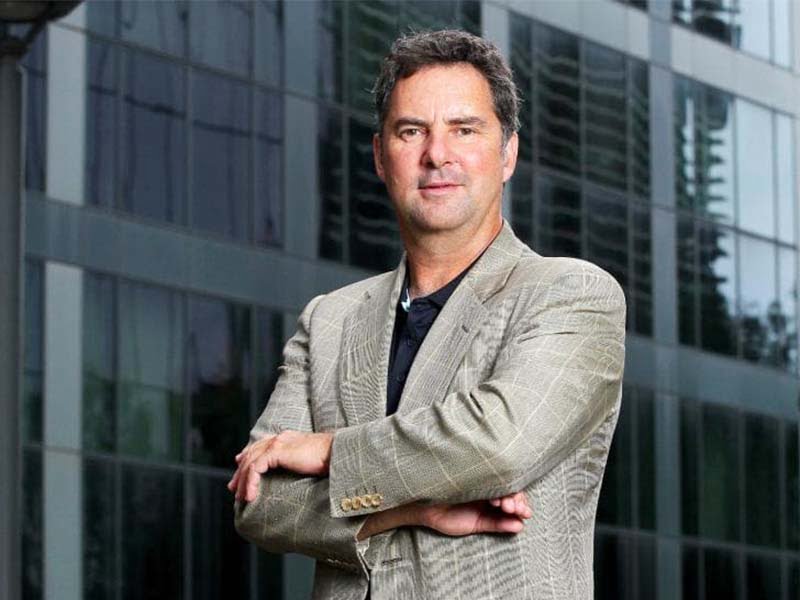CSIRO chief Larry Marshall has admitted Australia needs to lift its game in the light of a damning report card on patent filing, and has put up CSIRO’s hand to lead the ambitious National Missions program suggested by Innovation and Science Australia.
The IP Australia report card on Australia’s patent, trademark and design register production for 2017 came out last week with the outfit that generates the largest amount of IP in Australia, as measured by patent filings, being poker machine king Aristocrat Leisure.
Aristocrat logged 157 patent applications while Mr Marshall’s CSIRO was a distant second with 45 applications in 2017.

BlueScope Steel, the next company after Aristocrat in the top five domestic patent filers list came fourth with 15 filings.
“We definitely need to up our game in innovation,” Dr Marshall said in reaction to the IP Australia report.
Dr Marshall said the value of a patent had to be considered along with the volume of filings.
“How valuable is always hard to tell because it takes a lot of years to cook,” he said.
“We’ll never compete with China and the US on the volume of patents, but I do think we can compete on quality,” he said.
The Innovation and Science Australia report and others have highlighted Australia’s problems in commercialising the results of the often excellent basic research done here.
Dr Marshall said national agencies such as CSIRO were the “natural bridge” between universities and industry because while universities were great at research and teaching, it was hard for them to reach into industry.
Dr Marshall is very enthusiastic about the National Missions concept that is one of the imperatives contained in the 2030 Strategy that was released publicly back in January.
The idea with National Missions is to try and juice up the sort of fervour punters had around science and technology-based endeavours – much like US President John F. Kennedy’s “we choose to go to the Moon in this decade” goal that made NASA a household word globally in the 1960s and increased its funding to eye-watering levels.
ISA was a little more down to earth with its suggestions for Australian National Missions. The biggie is using advanced genomics and precision medicine to help Australia become the healthiest country on Earth.
The other two are preserving the Great Barrier Reef beyond 2030 and converting the gas supply of an Australian city from natural gas to hydrogen to demonstrate the possibility of decarbonising the direct combustion sector, which is responsible for 18 per cent of Australia’s greenhouse gas emissions.
“We love it,” said Dr Marshall of the National Missions proposal, and immediately put up CSIRO’s hand to lead the missions if the Federal government were to endorse the concept.
“Tackling big, important national challenges is CSIRO’s purpose. For us it’s right in the centre of where we live.”
CSIRO has business units which slot right into the proposed National Missions. One is CSIRO Agriculture which Dr Marshall says is “the strongest genetics group in the country.”
“That genetics understanding is really important for understanding things like coral on the reef and how you save it. We’ve pulled together a consortium of people that are working on the Great Barrier Reef moon shot that’s mentioned in the ISA report.
“That’s a good early start to one of the moon shots,” said Dr Marshall.
CSIRO’s health business unit covers the genomics and precision medicine National Mission, according to Dr Marshall.
“That group is really pushing on with the other moon shot of making Australia the healthiest nation on earth,” he said.
Dr Marshall believes CSIRO is the natural leader for National Missions.
“CSIRO is the most connected part of the science system and we are trying to be the most connected part of the innovation system.
“We work with every university and every government department so it makes sense for us … to try and bring the system together.
“We have been doing that and laying the groundwork. As happened with the Great Barrier Reef the government will digest the report and they will ask someone to pull the system together and go make it happen,” he said.
Meanwhile, Coviu, CSIRO’s Data61 telehealth spinout has raised $1 million from the CSIRO linked VC fund Main Sequence Ventures.
Coviu’s cloud-based video consultation platform allows doctors and patients to interact remotely.
“Traditional video consultation solutions are designed for the boardroom,” said Coviu CEO Dr Silvia Pfeiffer in a statement
“In Coviu, we’ve developed a solution tailored for health practitioners that enables rich experiences with patients in the comfort of their own home through custom tools designed for each health specialisation, whether it’s speech pathology or psychiatry.
“This investment will give us the opportunity to scale Coviu and further embed ourselves into the primary healthcare space by partnering with other health systems as an enabler of video consultations,” she said.
Currently, 1,100 clinicians use Coviu, and the Main Sequence investment will help Coviu expand to an expected 7,000 clinicians by the end of the year.
The investment comes from CSIRO’s Innovation Fund, which is managed by Main Sequence Ventures.
Do you know more? Contact James Riley via Email.

